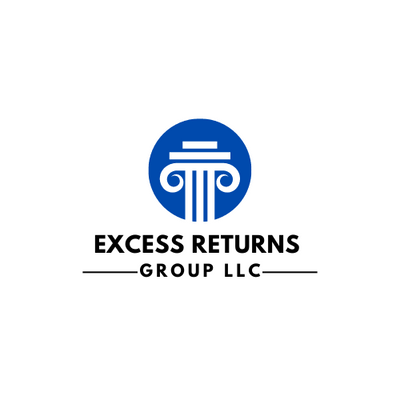
Excess Returns Group LLC
I'm Kristina, Our team’s experience and expertise in asset and surplus funds recovery have made it possible for us to give back millions of dollars to people just like you.
Excess Returns Group LLC an Asset Recovery

info@excessreturnsgroup.com
Why use Excess Returns Group?
We work on a contingency fee basis and cover all legal fees and costs throughout the recovery process. We assume all the risk and absorb all the cost. If we don’t deliver results, you pay nothing.
In 2023, Texas alone has returned $344 million to owners of previously unclaimed property
I specialize in helping individuals reclaim unclaimed funds that are rightfully theirs. Whether it's from a bank account, lock box, indemnity, tax surplus, mortgage funds, insurance, or other sources, I streamline the paperwork process to ensure you receive what’s owed to you. My mission is to make the complex simple, guiding you every step of the way.
Surplus Funds / Foreclosures / Tax Deed Sales
When a sheriff’s auction or tax deed auction occurs, there is sometimes leftover cash after the bank has received their money. The leftover funds may belong to the former homeowner. However, this is sometimes not reported directly to the homeowner, and that cash is left in the hands of the state.
Services we Recover
Bank accounts, Trust funds, CDs, stocks, old bank accounts, Insurance policies, Safe deposit boxes, inheritances, and dividends,
Understanding Unclaimed Funds
What My Clients Say

Studio Rallia
I am very thankful for Excess Returns Group. I did not even know I had money from my Escrow account years ago and was able to recover in 37 days. I highly recommend them.

David Chin
My Father lost his home after his death due to non-payment of county Taxes and Kristina was able to recover the surplus funds of $31,676.54.

Golstra, Inc.
I was very pleased my INDEMNITY group policy form 4 years ago was recovered in the amount of $5,395.47
Summery
The U.S. has billions of dollars in unclaimed property
Approximately 1 in 7 people do! There are literally billions of dollars in unclaimed property, held by state governments and treasuries within the United States.
What exactly is unclaimed property?
Unclaimed or “abandoned” property refers to property or accounts within financial institutions or companies—in which there has been no activity generated (or contact with the owner) regarding the property for one year or a longer period.
When does property become "unclaimed"?
After a designated period of time (called the dormancy period) with no activity or contact, the property becomes “unclaimed” and—by law—must be turned over to the state.

Types of unclaimed property
Unclaimed property can be intangible, which is the most common (ex. uncashed paychecks, stocks), or tangible (ex. safe deposit box contents). Some of the common forms of unclaimed property include:
- Checking or savings accounts
- Stocks
- Uncashed dividends or payroll checks
- Refunds
- Traveler’s checks
- Trust distributions
- Unredeemed money orders or gift certificates (in some states)
- Certificates of deposit
- Customer overpayments
- Utility security deposits
- Mineral royalty payments
- Contents of safe deposit boxes
- Insurance payments or refunds and life insurance policies
- Annuities

FAQ
Q: What is the “mission”?
A: The “mission” is to recover your funds for you.
Q: Are there any hidden attorney fees or costs when choosing Excess Returns Group LLC to recover my surplus funds?
A: There are never any hidden attorney fees or costs associated with the recovery process with Excess Returns Group LLC. Many companies will in fact have you pay back any legal fees and expenses they paid out during the recovery process and will deduct those fees from your portion of the surplus funds without advising you upfront. Our recovery agreement does not include any hidden fees whatsoever. We cover all costs incurred by the recovery process at our expense and only get paid if we are successful in recovering your funds. Our contingency fee includes any and all legal fees and expenses and does not come from your portion of the surplus or unclaimed funds.
Q: Do I need to personally appear in court?
A: In almost all cases you will not have to appear in court when choosing Mission Recoveries LLC. Our trusted counsel we retain at our own expense will attend any and all required hearings on your behalf. This helps our clients who live out of the state and country still collect their unclaimed and surplus funds without all the additional hassle of travel arrangements or taking time off of work.
Q: Why choose Excess Returns Group LLC?
A: Mission Recoveries is dedicated to providing exemplary service with extreme attention to detail. Our clients rely on us to navigate the tedious process of recovering unclaimed funds in an effort to preserve their own time and energy. Our team is always willing to go the extra mile to ensure that recovering your funds goes as swiftly and efficiently as possible.
Q: How do you know the money goes to me?
A: We will need to research the chain of ownership of the asset to make sure you did not unwillingly sell or sign away your rights to it somehow.
Q: What are the chances that you will be able to recover the money?
A: If the money is yours, we will get it for you. Our team has successfully recovered over two million dollars. We take pride in reuniting our clients with their lost assets. Detect. Collect. Connect. That’s our motto!
Q: What will you need to recover the money?
A: To be 100% sure, we need to do some digging. Depending on your individual case, there may be contracts we need to find, court documents to track down, deeds to order, photo identification to copy, wills to locate, title searches to hire out, investigators to send out, or trips to government offices to make.
Q: What does it cost me?
A: Nothing. We work strictly on a contingency fee basis, charging only a percentage of what we are able to recover on your behalf. We will not be paid unless you are paid. If we recover nothing, then you pay nothing.
Q: How will I be paid?
A: Once the asset recovery process is complete, you will receive a check from us in the mail. It’s as simple as that.
Let's work together!
Contact me and let's schedule a chat.
Phone
(720) 226-2500
Email
info@excessreturnsgroup.com
SOCIAL